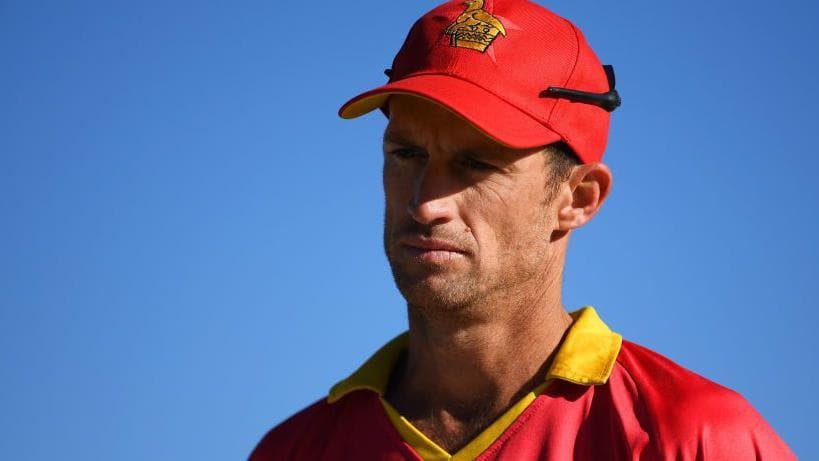We're loading the full news article for you. This includes the article content, images, author information, and related articles.
The abrupt conclusion of a celebrated two-decade career sends shockwaves through regional cricket, raising urgent questions about player welfare and anti-doping vigilance in a landscape that includes Kenya.

HARARE, ZIMBABWE – The international career of Sean Williams, one of Zimbabwe’s most accomplished cricketers, came to a sudden and sobering end on Tuesday, November 4, 2025, after Zimbabwe Cricket (ZC) announced it would no longer consider him for national selection. The decision, confirmed in an official statement, followed the 39-year-old all-rounder’s disclosure that he is struggling with drug addiction and has voluntarily entered a rehabilitation program.
The announcement effectively terminates the contract of the former captain, which expires on December 31, 2025, drawing a line under a storied yet sometimes turbulent 20-year tenure. Williams has not yet issued a public comment on the board's decision.
The catalyst for the disclosure was Williams' withdrawal from the national team in September, just before the ICC Men's T20 World Cup Africa Qualifier series in Harare, initially citing “personal reasons”. An internal investigation by ZC into his unavailability led to Williams revealing his battle with addiction. In its statement, ZC noted the withdrawal occurred “amid potential anti-doping testing,” which raised “serious concerns regarding professional and ethical standards.”
“While ZC commends him for seeking rehabilitation… after careful consideration, ZC has concluded that Williams will no longer be considered for national selection,” the governing body stated. The board also referenced a “history of disciplinary issues and repeated unavailability, which has impacted team preparations and performance.”
Williams leaves the international stage as a giant of Zimbabwean cricket. Since his debut in 2005, he has amassed nearly 9,000 international runs and taken over 160 wickets across all three formats. His record includes 24 Tests, 164 One-Day Internationals (ODIs), and 85 T20 Internationals. Specifically, he scored 1,946 Test runs, 5,217 ODI runs, and 1,805 T20I runs, establishing himself as a versatile and critical player for the Chevrons. With 14 international centuries, he ranks third on Zimbabwe's all-time list, behind only Brendan Taylor and Andy Flower.
The news of Williams' departure reverberates beyond Zimbabwe, casting a spotlight on player welfare and anti-doping protocols across African cricket. The T20 World Cup Africa Qualifiers, the event Williams withdrew from, is a critical pathway for nations like Kenya aiming for the global stage. In a recent sub-regional qualifier held in Nairobi in October 2024, Kenya secured its place in the 2025 Africa Regional Finals after finishing second behind a Zimbabwean team that, even without Williams, proved dominant. Zimbabwe ultimately defeated Kenya in the final of that tournament and later in the semi-finals of the Regional Final to secure their spot at the 2026 T20 World Cup.
Williams’ situation serves as a stark reminder for Cricket Kenya and other regional bodies of the immense pressures facing elite athletes. It underscores the necessity for robust support systems addressing mental health and substance abuse. In Kenya, the Anti-Doping Agency of Kenya (ADAK) enforces World Anti-Doping Agency (WADA) codes, which place a principle of strict liability on athletes for any prohibited substance found in their system. Williams' case, particularly ZC's reference to potential anti-doping tests, highlights the critical intersection of player personal struggles and stringent international regulations.
Substance abuse is not a challenge unique to Zimbabwean cricket. The sport has seen several high-profile cases globally, from Shane Warne's ban for a diuretic in 2003 to more recent cases involving recreational drugs with players like Alex Hales of England and South Africa's Kagiso Rabada. Zimbabwe Cricket itself has dealt with similar issues before, with players Wessly Madhevere and Brendan Taylor also facing sanctions and rehabilitation related to substance use.
While acknowledging Williams' immense contribution to the sport over two decades, Zimbabwe Cricket's statement was firm. “ZC expects all contracted players to uphold the highest standards of professionalism, discipline and compliance with team protocols and anti-doping regulations,” it read. As Williams focuses on his recovery, the regional cricket community is left to ponder the support structures in place for its athletes and the vigilance required to protect the integrity of the sport.
Keep the conversation in one place—threads here stay linked to the story and in the forums.
Sign in to start a discussion
Start a conversation about this story and keep it linked here.
Other hot threads
E-sports and Gaming Community in Kenya
Active 9 months ago
The Role of Technology in Modern Agriculture (AgriTech)
Active 9 months ago
Popular Recreational Activities Across Counties
Active 9 months ago
Investing in Youth Sports Development Programs
Active 9 months ago